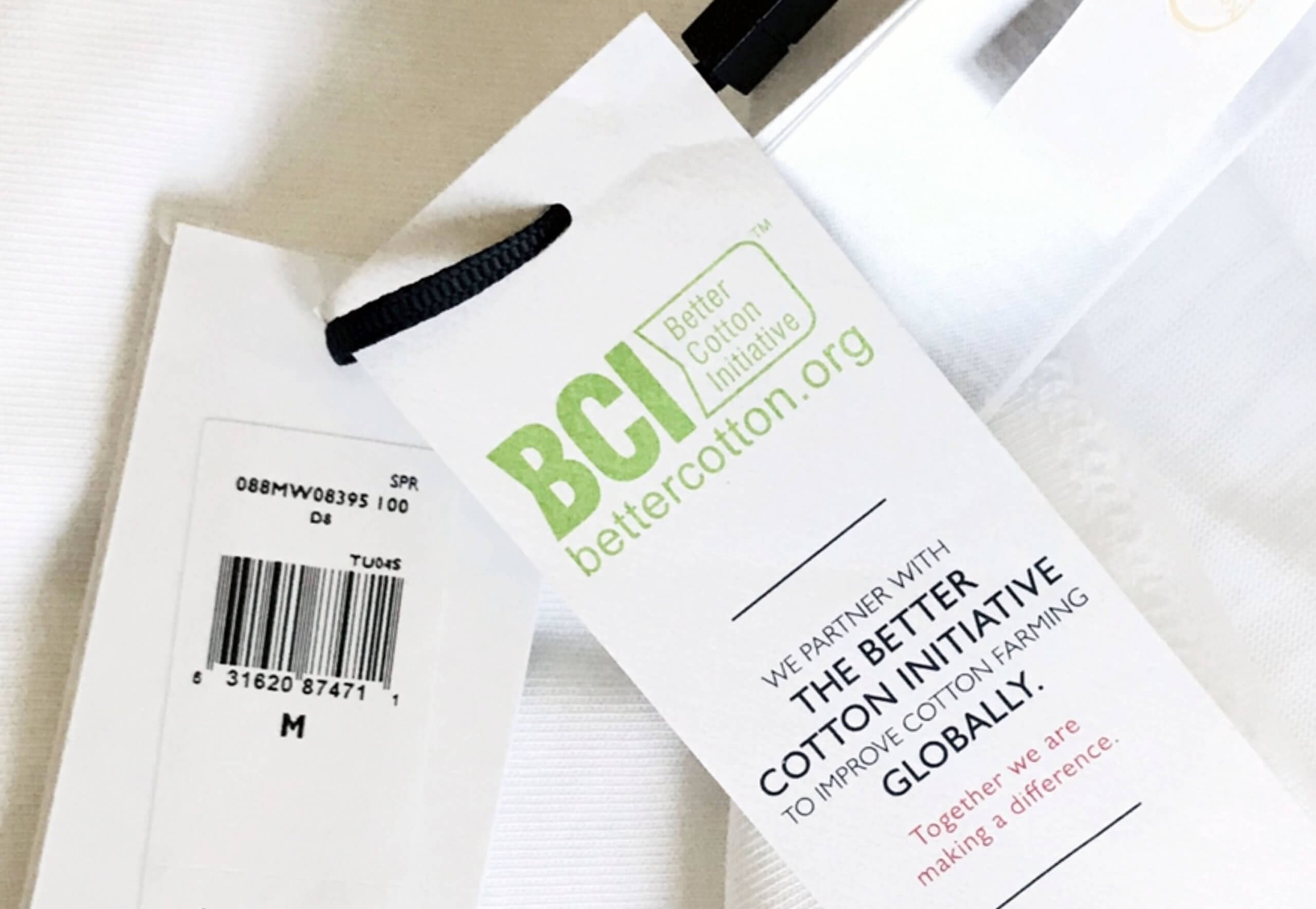The Better Cotton Initiative
In the mid-2000s, there was a sharp increase in demand for “organic cotton”. As it was impossible to fulfil this demand without imposing a terrible cost on farmers and the environment, stakeholders got together and established the Better Cotton Initiative (BCI) in an attempt to break the binary organic/conventional chains threatening the entire market. The BCI is a series of principles and standards to ensure that the cotton was grown, harvested and manufactured in the most sustainable manner possible. As a label, it commits to continuously developing best practices and managing risks responsibly. Ten years after its launch, 20% of all cotton is BCI certified.

This pragmatic approach broke the handcuffs the organic label was putting on cotton farmers, with the supply chain supporting agricultural improvements and better working conditions for farmers while increasing consumer trust in agricultural stewardship.
Isn’t it time for such an initiative to be extended to all farming sectors? Isn’t it time for a Better Farming Initiative(BFI)?
The benefits of BFI
Better Farming principles would promote sustainable agriculture outside of any organic vs conventional agriculture preconditions. For example:
- The non-scientific dichotomy between synthetic and natural-based pesticides would be eliminated. Each substance would be assessed according to its sustainability profile.
- Seed breeding technologies would be evaluated on their merits rather than some arbitrary process definition.
- Any BFI would have a key goal of enhancing soil management. This is not a one-size-fits-all approach, but the objective should be to continually work for better soil health, carbon sequestration and reduced erosion and degradation.
- Smallholders in developing countries should be offered the best available tools to increase yields, reduce harsh working conditions and bring their produce more easily to market. We need to stop imposing ideologies that impoverish the most vulnerable.
- Assuming farmers can increase yields on more fertile land, the BFI would encourage means to return less productive land to biodiverse usage.
The BFI would concentrate on developing more climate-friendly farming techniques, resilience, better labour standards, fair trade and access to markets, data and technology. This Better Farming approach can also benchmark excellent national initiatives (like the UK’s Voluntary Initiative).
Integrated Pest Management’s expectations
Many of the recent attacks on crop protection tools were not due to actual environmental risks, but over how their use confronted certain activist expectations: that Integrated Pest Management (IPM) was intended to move towards eliminating all pesticide use. So, while herbicide-resistant seeds may reduce overall herbicide use (and allow for much better regenerative soil management techniques), it also implied that herbicide usage would not be phased out. The campaigns to ban certain neonicotinoid-treated seeds was never about saving the bees (many alternatives were far worse for pollinator health). By treating seeds to prevent any possible pest infestation, these neonics went against IPM’s “use only when necessary” ideal (regardless of the reduced overall environmental toll).

IPM would not achieve the activist ideal if these pesticides were promoted for their sustainable solutions so opponents launched intense campaigns (resulting in worse environmental degradation). Under a Better Farming standard, these crop protection technologies would be promoted as best available soil and pest reduction practices. BFI would entail a more reasonable, pragmatic interpretation of IPM.
Better ideas
Shifting to a Better Farming focus is urgent. Years of relentless fear campaigns have destroyed the reputation of agriculture, but a BFI would also have challenges.
Some would argue that a BFI label would be insulting to farmers (and I understand that). All farmers do the best they can to protect their soil, grow safe food and feed their communities. Sadly, the organic food industry lobby has destroyed that perception with their good vs evil mindset. Confidence needs to be restored while those struggling to meet certain sustainability standards, particularly in vulnerable regions, will need more technological support (rather than more ideology).
Some would argue the Better Cotton model is impractical given the disparities in the food value chain compared to the more closed cotton chain (and I understand that). The downstream food industry is going to have to step up and work with farmers and scientists first rather than immediately reacting to any consumer fear campaigns. For that we need to develop an “integrated risk management process” for the entire food value chain.
David Zaruk has been an EU risk and science communications specialist since 2000, active in EU policy events from REACH and SCALE to the Pesticides Directive, from Science in Society questions to the use of the Precautionary Principle. Follow him on Twitter @zaruk
A version of this article was originally posted at European Seed and has been reposted here with permission. European Seed can be found on Twitter @EuropeanSeed































